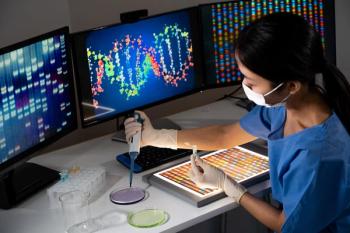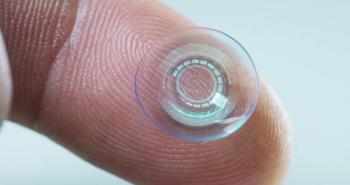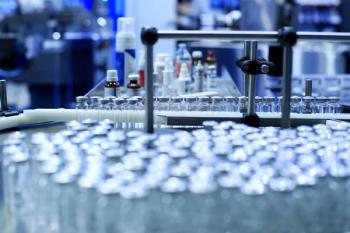
Bepotastine yields lasting relief
Pooled results from two prospective, multicenter, double-masked, placebo-controlled studies show a multimodal anti-allergy product, bepotastine besilate ophthalmic solution 1.5%, provides rapid and long-lasting clinically significant improvement in allergen-induced ocular itching.
Miami-Pooled results from two prospective, multicenter, double-masked, placebo-controlled studies show a multimodal anti-allergy product, bepotastine besilate ophthalmic solution 1.5% (Bepreve, ISTA Pharmaceuticals), provides rapid and long-lasting clinically significant improvement in allergen-induced ocular itching, said Terrence P. O'Brien, MD. He is professor of ophthalmology and holder of the Charlotte Breyer Rodgers Distinguished Chair, Bascom Palmer Eye Institute, University of Miami Miller School of Medicine.
In the study period, patients were randomly assigned to receive a single drop of bepotastine besilate 1.5% or placebo into both eyes at one visit and were treated with the alternate study agent at a subsequent visit. CAC was performed at 15 minutes, 8 hours, and 16 hours post-instillation of the study agent (bepotastine or placebo), and participants were asked to grade the severity of ocular itching.
Analyses comparing proportions of eyes that achieved a 1.0-unit or greater improvement from baseline itching score showed statistically significant differences favoring bepotastine over placebo at all three testing intervals (p < 0.05).
Upon exposure to allergen 15 minutes post-dosing, 95% of bepotastine-treated eyes achieved a 1.0-unit or greater improvement from baseline itching score, and 68.3% of bepotastine-treated eyes with itching rated severe (3 or greater) had no itch within 3 minutes of the challenge. When challenged 8 hours and 16 hours post-dosing with bepotastine, itching severity scores group were improved by at least 1.0 unit from the baseline value in 89% and 76% of eyes, respectively.
However, following placebo treatment across all three test periods, fewer than half of the eyes (40% to 47%) had a 1.0-unit or greater improvement from baseline itching score, and only 3.1% of eyes with itching rated severe were itch-free at 3 minutes after the challenge (15 minutes after placebo instillation).
"By eliminating many of the variables encountered in real-world, environmental studies, the standardized CAC model for testing anti-allergy agents enables determination of a product's efficacy for relieving itching . . . in terms of defining [both] its onset of action and duration," Dr. O'Brien said. "Considering the data for both the proportion of eyes achieving a 1.0-unit reduction in itch severity compared with baseline, an improvement [that] is considered to be clinically relevant, and the proportion that were itch-free at 15 minutes, the results for bepotastine are impressive."
Newsletter
Want more insights like this? Subscribe to Optometry Times and get clinical pearls and practice tips delivered straight to your inbox.















































